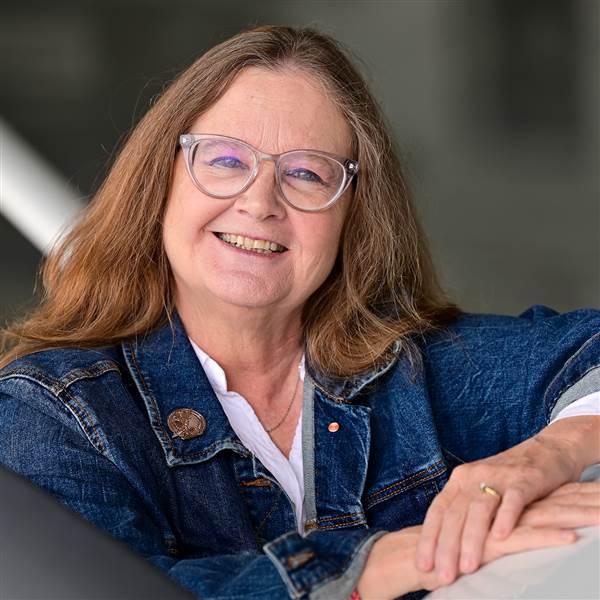News /
Redbird, King Schools announce flight training research lab, school
Redbird Flight Simulations and King Schools have announced a state-of-the-art aviation research and development laboratory with a working flight school that will open November 8. The facility will study curricula, practices, recruitment of students, and all other aspects of flight training to gather measurable data about what’s working and what isn’t.
Currently under construction in San Marcos, Texas, Redbird Skyport will include a Part 141 flight school and fixed-base operator that will train students for the private, instrument, commercial, and CFI certificates. The students who progress through the flight school, called ProFlight Academy, will serve as “lab rats” for the laboratory, according to Redbird Chairman Jerry Gregoire.
Everyone in the aviation industry wants to remedy the growing problem of student pilot retention, and everyone has their own theory about what’s driving it, Gregoire said. “You can’t [fix] what you can’t measure,” he said, adding that the students who progress through ProFlight will give the laboratory measurable data.
Aviation companies and organizations will be asked to feed projects to the lab, and the results will be shared with everyone in the industry, Gregoire said. “As a step toward fixing the problems with flight training, it’s a drop in the bucket, but it’s a start,” he said.
ProFlight Academy enrollees will undertake scenario-based training that utilizes Cessna’s online scenario-based training plus Redbird simulators.
“Can you imagine if, every time you scheduled a lesson, you did something—flew an airplane, a simulator, or did ground training?” said King Schools President John King. “If you incorporate a sim, you can have a predictable schedule, predictable costs for the customer, and predictable revenue for the flight school.”
King also pointed to the scenario-based training that ProFlight will utilize, saying that it will enhance safety. Students will be trained to be risk managers for each and every flight, he said.
AOPA President Craig Fuller praised the project as a whole, as well as the use of simulators in the program, saying, “I’m excited to see some of the breakthrough thinking represented by Redbird.” Student pilots who participated in AOPA’s Flight Training Retention Initiative survey identified simulators as valuable tools that allow them to train more cost effectively. Redbird Skyport “will give all of us a chance to try the best ideas and see if they can make a difference,” he added.
The federal aviation regulations allow 2.5 hours of simulator time to be logged for a private pilot certificate, but the ability to log additional simulator time isn’t the issue, said Martha King. The time spent in a simulator provides proficiency, she said. If students are taking 60 to 70 hours to finish, they’re still coming out ahead if they complete the 35 hours (for Part 141 schools) that the regulations call for plus another 15 hours in a simulator.
“We need to have instructors who see their role in life as instructors, not to build time,” she added, noting that CFIs can’t log the time students spend in a simulator.
‘IMC Club 2.0’ offers Pilot Workshops training
Effort aimed at instrument proficiency
IMC Club International, an instrument proficiency organization with chapters nationwide, announced July 26 an agreement to use Pilot Workshops scenario-based training modules at chapter meetings.
Calling the new structure “IMC Club 2.0,” the Norwood, Massachusetts-based organization said that all members will have access to some of Pilot Workshops’ IFR Mastery workshops monthly at the club’s meetings. Paid subscription members will have unlimited access to the workshops online. IMC Club President Radek Wyrzykowski said the workshops pose a scenario in a multimedia presentation and facilitate discussion.
Discussion with experts and other instrument-rated pilots helps members apply what they learned in instrument training to real-life scenarios, Wyrzykowski said.
“For us, the most important part is exchange of experience,” he said. Because chapters nationwide will go through the same scenario for a particular month, IMC Club members from around the country can discuss the workshop, he said.
Wyrzykowski said the agreement was a natural fit for the two organizations, which focus exclusively on instrument flying safety.
“The synergy is obvious,” said Mark Robidoux, founder of PilotWorkshops.com, in a press release. “We are two unique organizations that are addressing ongoing IFR proficiency and safety among general aviation pilots. I am looking forward to making our experts and resources available to the members of IMC Club.”
The IMC Club (www.imcclubs.org) began establishing chapters in November 2009 and has grown to 29 chapters and nearly 1,000 members. Wyrzykowski said that in addition to providing training, the club offers an opportunity for pilots just to hang out and talk about flying. “They are not just dry training sessions,” he said.
Basic membership in the IMC Club is free; the full subscription, with unlimited access to the online workshops, is $25 a month. Wyrzykowski said pilots also can purchase an annual subscription, which offers a 10-percent discount.

